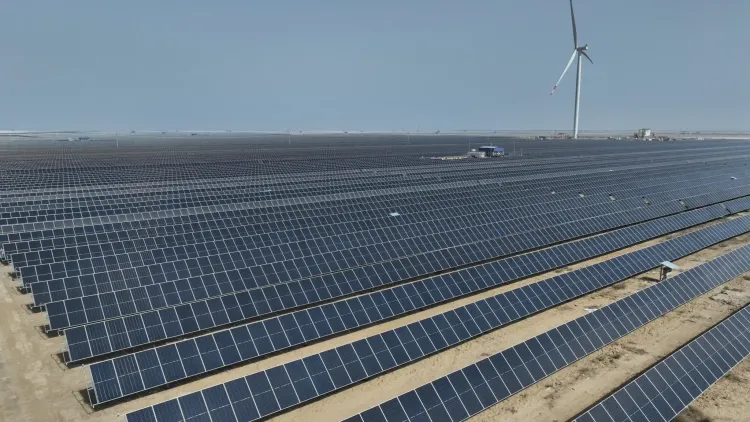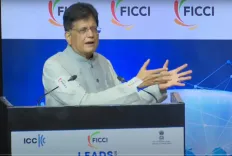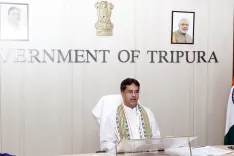DPIIT Secretary Evaluates Major Infrastructure Developments in Gujarat and Rajasthan

Synopsis
Key Takeaways
- Review of 21 issues across 14 major projects.
- Focus on enhancing inter-ministerial coordination.
- Khavda Renewable Energy Park to produce 81 billion units of clean electricity.
- Expected creation of 15,200 green jobs.
- Importance of utilizing Project Monitoring Group for project support.
New Delhi, Feb 15 (NationPress) Amardeep Bhatia, Secretary of the Department for Promotion of Industry and Internal Trade (DPIIT), presided over a crucial meeting on Saturday to address significant challenges impacting large-scale infrastructure initiatives in Gujarat and Rajasthan.
The assembly, which saw participation from senior officials representing Central ministries, state governments, and project advocates, aimed to accelerate the resolution of issues through improved collaboration across ministries and state bodies, facilitated by the Project Monitoring Group (PMG).
During the session, a total of 21 issues across 14 major projects were assessed, including four projects linked to the Ministry of Labour and Employment, with the cumulative investment of these projects surpassing Rs 13,162 crore.
Furthermore, seven challenges related to a private initiative valued at Rs 600 crore were also examined, as per a statement from the Ministry of Commerce and Industry.
The meeting particularly highlighted the transmission projects of the Khavda Renewable Energy Park in Gujarat.
Upon becoming operational, this park is anticipated to produce roughly 81 billion units of clean energy each year, thereby significantly curbing reliance on fossil fuels.
Moreover, it is expected to generate around 15,200 green jobs across various fields, including construction, engineering, operations, and maintenance, according to the ministry.
The DPIIT Secretary reiterated the commitment to strengthening the institutional framework for monitoring projects and directed the relevant bodies to proactively tackle outstanding issues.
He also underscored the necessity for private project proponents to utilize the specialized framework of the Project Monitoring Group (PMG) to hasten project execution and guarantee prompt and effective resolution of their challenges through cooperative efforts among the Central government, state officials, and private stakeholders.
Once completed, the Khavda Renewable Energy Park will generate 30 gigawatts of electricity from both solar and wind resources, making it the largest hybrid renewable energy park globally.








